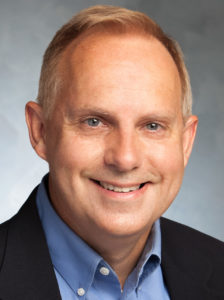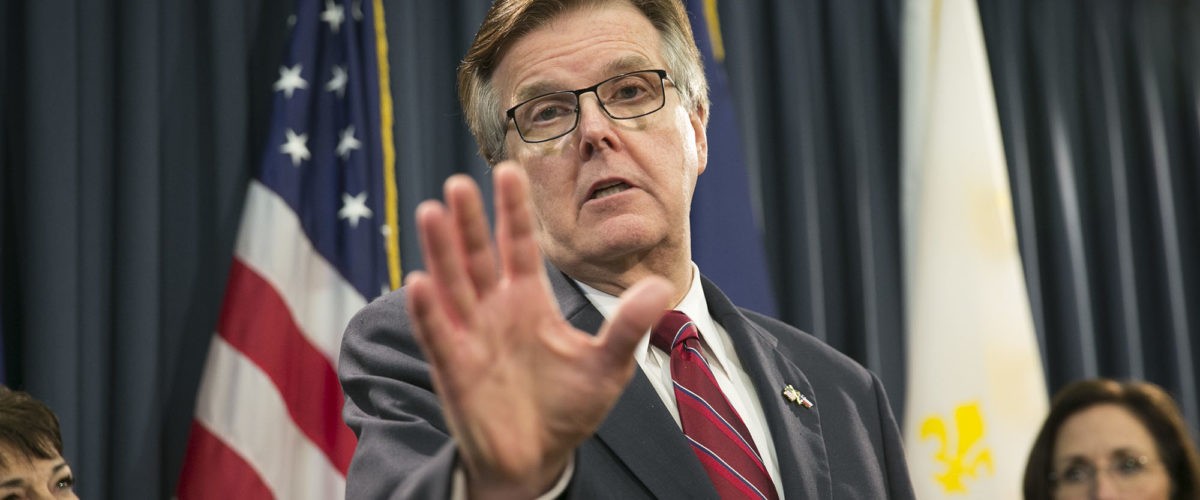The Texas Legislature is currently considering bills forbidding the teaching in public schools of Critical Race Theory or the notion that America’s founding on slavery and taking land from indigenous people might in any way complicate the greatness of our nation. Lt. Gov. Dan Patrick applauded the bills that have been passed by House and Senate, saying, “Texans reject Critical Race Theory and other so-called ‘woke’ philosophies.”
It’s a pretty consistent message about the wrongness of wokeness.
Patrick is one of an unending stream of mostly white, mostly wealthy public figures employing the word “woke” lately in press conferences and in the media. Legislators in numerous other red states are considering very similar public education measures banning the teaching of America’s racist and sexist past, while many national politicians have taken to the airwaves to promote the talking point that “woke corporations” like Coca-Cola, Dell, and Major League Baseball (who have objected to the national wave of legislation restricting voting and making it harder for working-class people and people of color) need to be reminded that Republicans drink flavored water too.

Greg Garrett
Seeing Patrick, or Sen. Marco Rubio, or Sen. Josh Hawley or Sen. Ted Cruz use the words “woke” or “woke mobs” has a certain entertainment value, certainly. Like imagining Sen. Mitt Romney trying to free-style rap. But it makes me wonder: Why is it that whether in the schools, in corporate life or in public discourse, a whole bunch of conservative people want us to stay asleep — or to turn over and go back to sleep?
A few years ago, another Establishment white guy, David Brooks, tried to explain the concept of wokeness in the Times. He did so in a way that starts to show why “wokeness” might be alarming to people at the top: “To be woke is to be radically aware and justifiably paranoid. It is to be cognizant of the rot pervading the power structures.”
To be woke, then, is not about being cool or trendy or indulgent or socialist or whatever it is that these mostly white, totally uncool politicians mean to imply when they repeatedly use the term in interviews and on social media. (David French says these conservatives are using “woke” as a synonym for “wrong”; I suspect they are also simply doing some old-fashioned racist dog whistling, since both “woke” and “mobs” are connected in the minds of many whites with scary Black people.)
Let’s push back on these negative uses of “woke” and lean into that of Brooks: To be woke is to be alert, aware and, quite possibly, informed in ways you previously were not.
“To be woke is to be alert, aware and, quite possibly, informed in ways you previously were not.”
In my book on race and culture, A Long Long Way, I quoted my friend Vann Newkirk II, who is someone who can credibly use the word “woke.” We were doing a program onstage at Washington National Cathedral, and Vann was talking about Martin Luther King Jr.’s final Sunday sermon, delivered from the imposing Canterbury Pulpit just to our left:
It was in one way a standard theological examination. He begins with Scripture from the book of Revelation. But then he goes to talking about the story of Rip Van Winkle, a fellow who fell asleep for 20 years and woke up — he fell asleep during the time the United States was controlled by the crown, and woke up in a post-revolutionary era. King used that example sort of as a parable to warn people about how to remain awake during a great revolution. What he talked about was how to stay woke, as lots of people say. But also how to, if you were in the process of waking up, how to have your racial awakening, and how to get to the point where you could critically engage with life, with race, with becoming an anti-racist.
What does it mean to have your racial awakening? Over the past year, I’ve had conversations with numerous white people who saw the George Floyd video, or who witnessed during the pandemic how many of our front-line workers were people of color, or who recognized that this pandemic and recession have affected people very differently based on the color of their skin. Out of this awakening has come a recognition that people who have opened their eyes have a responsibility to do something about what they’ve seen — to critically engage with life, to use Vann’s phrase.
“It does not suit people in power to have the rot in our power structures even questioned, let alone overturned.”
But it does not suit people in power to have the rot in our power structures even questioned, let alone overturned. “Go back to sleep,” is the call they are making to people, groups or corporations who speak up about social injustice. “Don’t wake up” is the call being delivered to our school children, and the suggestion to white people with privilege who can be frightened with the threat of losing it.
Widespread wokeness also doesn’t suit people who don’t want the glorious past questioned, because if the past wasn’t stuffed full of liberty and justice for all, then maybe the present isn’t so glorious either.
On May 14, the Texas House passed a bill mandating that exhibits at the Alamo focus on the heroic siege and on the Texas Declaration of Independence. Texas legislators got red in the face about the idea that students and visitors might be told that Texas heroes like William Barret Travis were slaveholders, or learn the inconvenient fact that the Texas war for independence — like the Civil War, later — centered on slavery, that as Andrew R. Graybill writes in Texas Monthly, “the states’ right the Texans most relentlessly asserted was the power to own slaves.”
But hey, go back to sleep.
There’s nothing to see here.
I’ve been teaching the works of people of color — and of women writers and filmmakers — for more than 30 years at Baylor University. Part of that pedagogy always has been about my desire to learn and teach about the entire human experience, not just the one that looks like mine. But the other part, the most important part, has been my awakening to the awareness that often we are told only a part of the story, and that my students and I need more if we’re going to live with integrity and act with justice.
Only by hearing the whole story can we wake up.
Greg Garrett teaches creative writing, film, literature and theology classes at Baylor University. He is the author of two dozen books of fiction, nonfiction, memoir and translation, including the critically acclaimed novels Free Bird, Cycling, Shame and The Prodigal. He is one of America’s leading voices on religion and culture. One of his most recent nonfiction books is In Conversation: Rowan Williams and Greg Garrett. His latest book, A Long, Long Way: Hollywood’s Unfinished Journey from Racism to Reconciliation, is hot off the presses. He is a seminary-trained lay preacher in the Episcopal Church. He lives in Austin with his wife, Jeanie, and their two daughters.
Related articles:
‘God bless white America’: Why we need to overturn white racial mythologies | Opinion by Greg Garrett
Could you win a quiz show by defining ‘Critical Race Theory’? | Analysis by Mark Wingfield
SBC seminary presidents are propagating fear to maintain control | Laura Levens
‘Southern pride’ or racism? White Christians are compelled to discern the difference. And confess. | Opinion by Alan Bean


